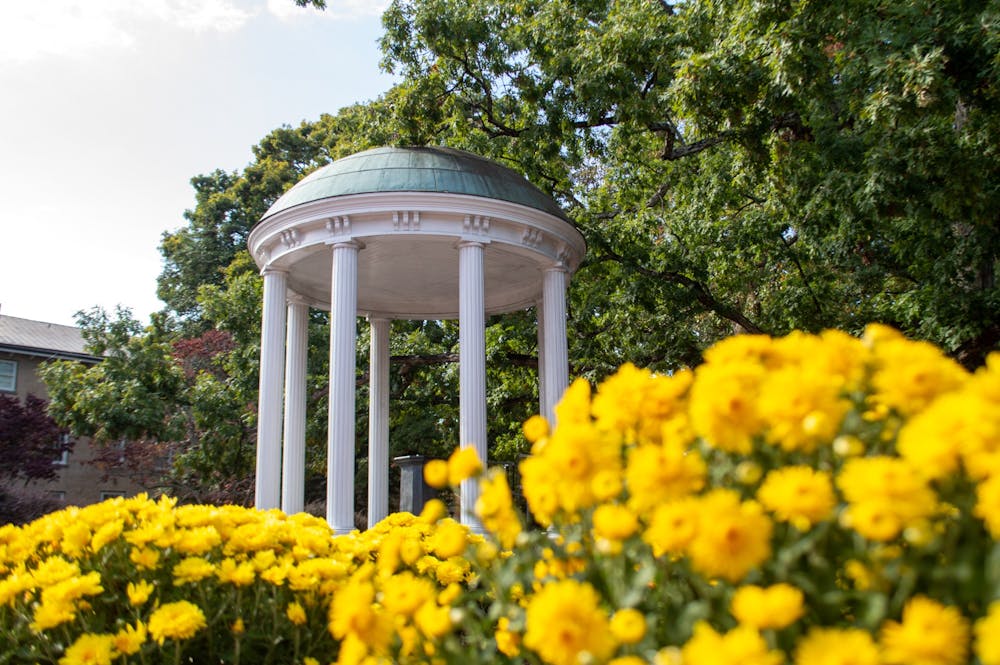Within hours of Roe v. Wade being overturned on June 24, universities across the United States issued their responses, varying in opposition, support and neutrality. UNC has since offered its silence.
The ruling did prompt reactions from leadership within UNC, though none on behalf of the University. Chairperson of the Faculty Mimi Chapman released her own statement, calling on colleagues to engage as “health and well-being are so threatened."
Barbara K. Rimer, dean of the Gillings School of Global Public Health, expressed her criticism for the politicization of abortion, stating that the Supreme Court decision will exacerbate inequities in the country. But even her message began with a disclaimer: “The views expressed in this message are Dean Barbara K. Rimer’s alone and do not represent the views and policies of the University of North Carolina or the Gillings School."
The University has stood idly by, at least in the public-facing sense. On campus, it appears to have a different attitude — it continues to offer robust reproductive health resources: free safer sex supplies, subsidized contraceptives for purchase, gynecology services, pregnancy testing and counseling. Even in this flip-flopping, the message UNC sends is rather clear: It cares, but only behind closed doors.
As an institution that consolidates experts on public health (we boast the number one public school of public health) – with medicine, law, ethics and reproductive health-adjacent fields, all on one campus — it is bizarre that UNC has not been proactive in the conversation on abortion.
The University is a much-needed source of authority in a changing and divided political landscape that should be taking charge to educate and engage its community in informed dialogue, especially when these changes in reproductive rights impact the majority of UNC’s population. I can’t imagine that a university’s priorities should lay elsewhere when so much valuable knowledge and research lies at its disposal.
It should heed the example of the University of Michigan, which, post-Dobbs, organized the online “Roe v. Wade Teach-Out” to help students learn about abortion rights history, legal challenges and the ruling’s implications.
It is important that the University lends itself to those who face limited access to reproductive and abortion services. This includes out-of-state students, who may be subject to varying regulations in their home state and might be looking to North Carolina for refuge.
While the University can’t enroll more out-of-state students because of a System-wide rule that caps enrollment at 18 percent, it can still be a resource for navigating potential legal challenges and obtaining healthcare by providing free access to University legal services and connecting them with abortion providers and counseling.




